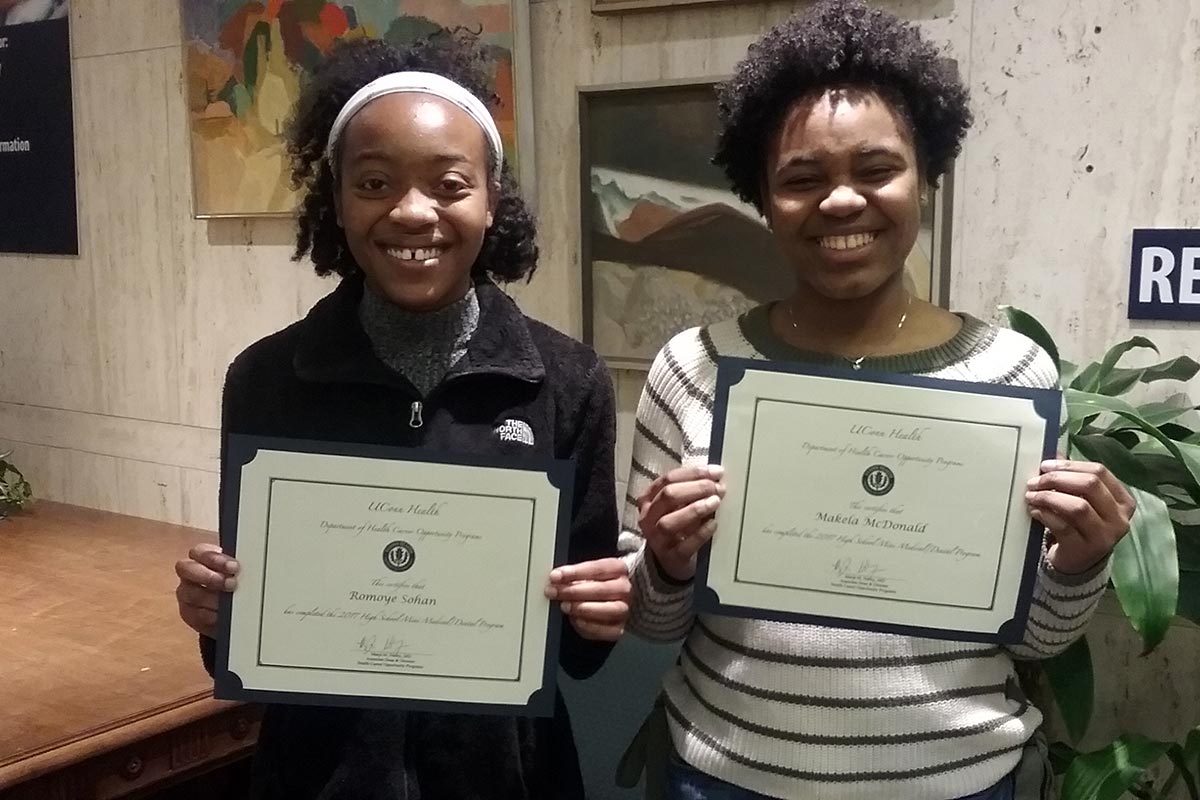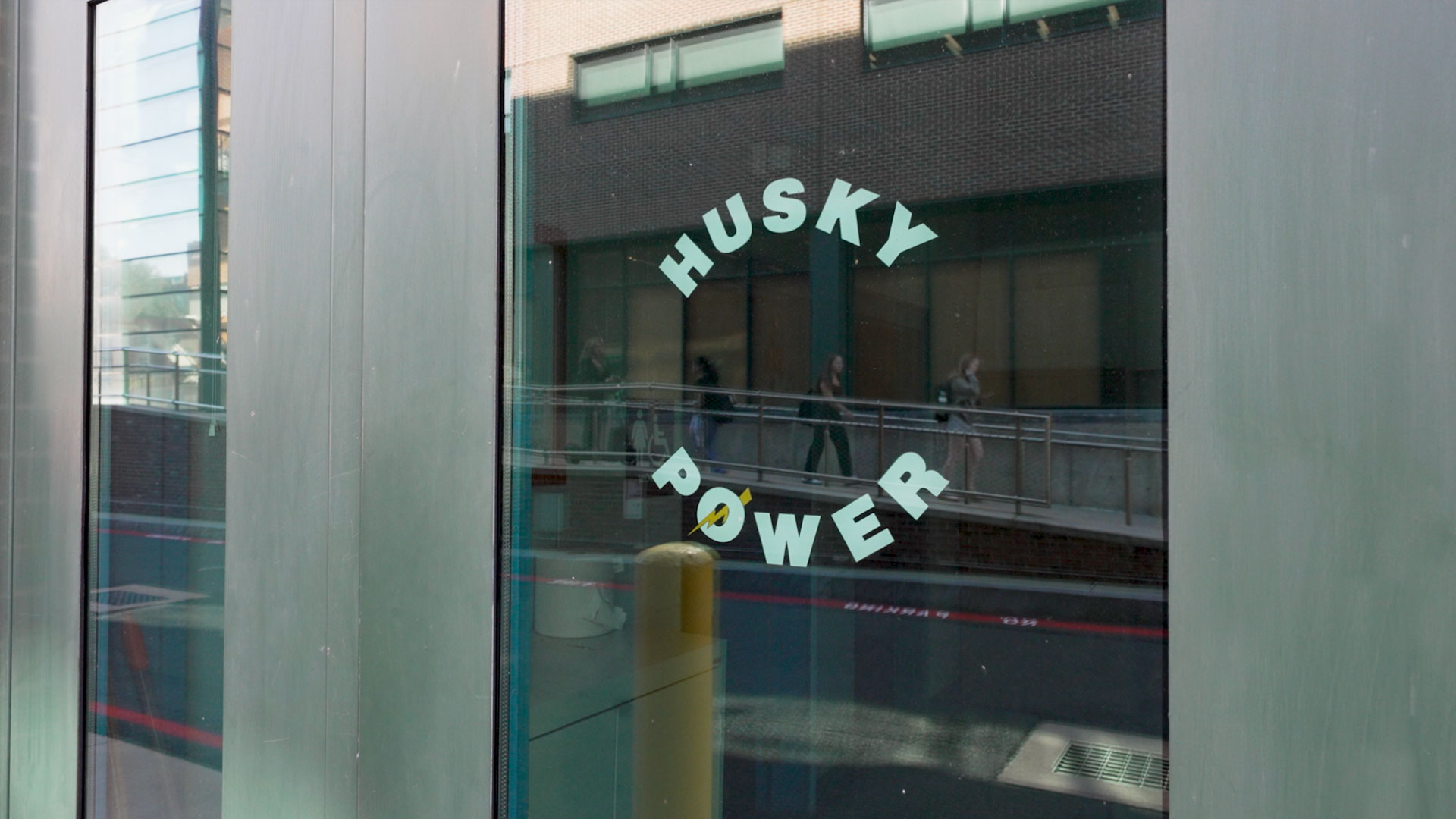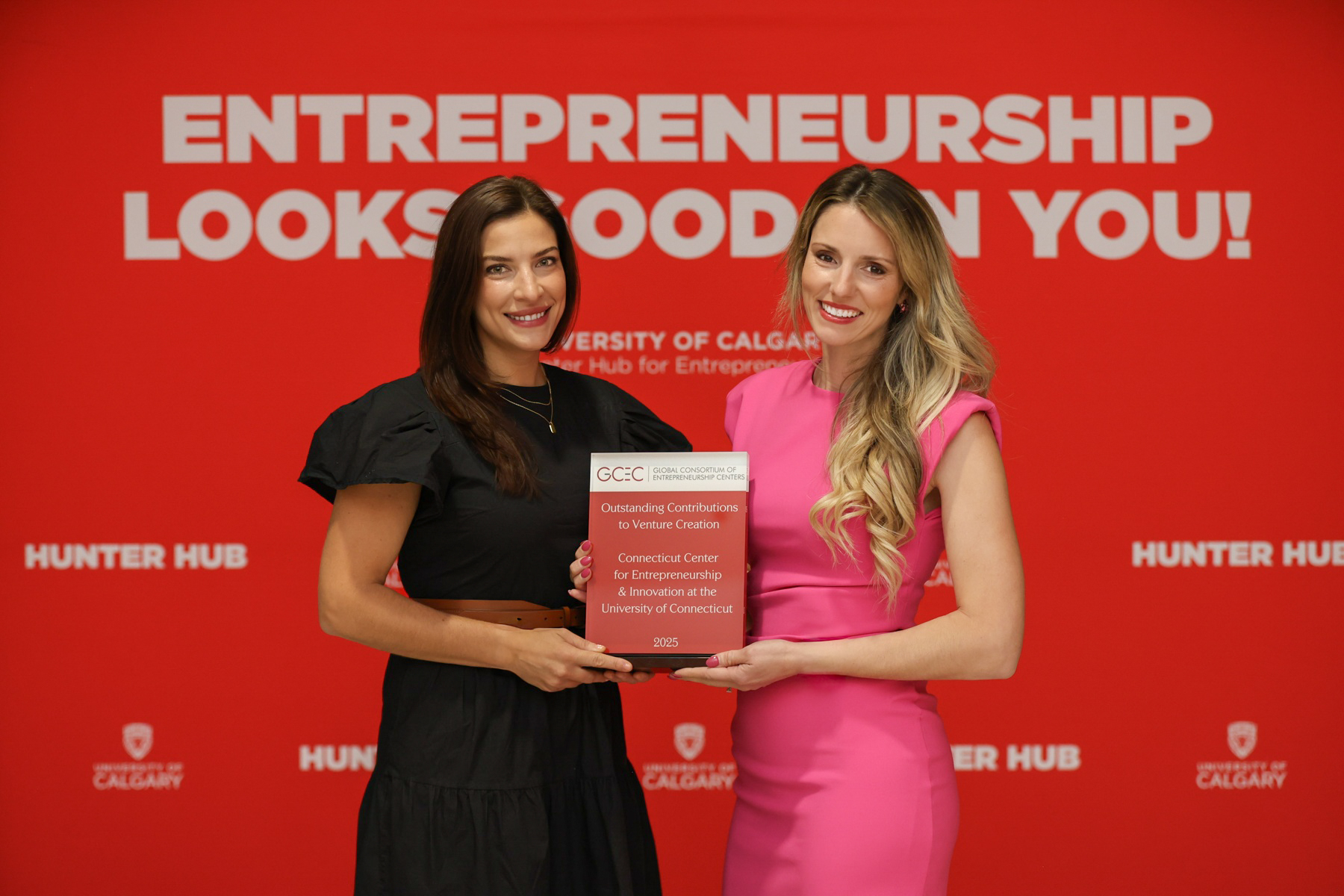A UConn Health lecture series designed to expose teens to career paths they previously may not have considered is now in its third decade.
The High School Mini Medical/Dental School Program brings students from Connecticut high schools together with UConn medical and dental faculty members for a series of weekly presentations. It’s one of the 15 Health Career Opportunities Programs (HCOP) at UConn Health.
“We support students of diverse backgrounds and provide access, mentoring and exposure to the health professions for Connecticut students,” says Dr. Marja Hurley, HCOP’s founding director. “The High School Mini Medical/Dental School Program is part of these efforts, and one of several pipeline programs, to provide such exposure to the students. Several students who have participated in this program have gone on to health professions and have graduated from our medical school.

This year’s was the 21st class. Sixty-seven students from 25 Connecticut high schools attended.
“This program showed me different perspectives of the people and how they work, and how each one said that they had to work in a team,” says Daviel Garcia of Hartford, a junior at the CREC Academy of Aerospace and Engineering in Windsor Locks. “It also showed how diverse the medical field can be.”
An aspiring biomedical engineer, Daviel is also a graduate of HCOP’s Jumpstart Doctors Academy and he hopes to be part of the Pre-College Research Program this summer.
“I am excited to expose students to all facets of health care,” says Dr. Sarita Arteaga, dental school associate dean for students. “Many high school students don’t know all of the variations in the field of health care.”
Arteaga was among the 14 presenters over the program’s seven weeks. She and other faculty speakers say this is an important time in these students’ lives.
“They are now suddenly realizing there is a ‘bigger picture’ out there that extends beyond where they are now in school,” says Dr. Thomas Regan, medical school assistant dean of admissions. “There are lots of career options they can choose from, and these are the students who are seeking guidance and opportunities to make these choices. They are motivated to explore different fields, including the health care field. I find being able to help students in this process, from high school to college to medical school to residency, is extremely fulfilling.”
Adds Dr. George Wu, director of hepatology in the Division of Gastroenterology-Hepataology, “It is gratifying to have an opportunity to talk about a great career, and possibly influence people who have curiosity and interest. With the rapid changes in health care, it is important to provide students with an accurate picture of the state of the profession. Because much of what is available on the internet and in the media is inaccurate, it is important for academic physicians to give a balanced, and fair view of what it is like to be a physician in the 21st century in the U.S.”
The students received their certificates of completion last week in a ceremony in the Keller Auditorium.
“I want these young students to be open-minded and to understand that life is special and rich with opportunity, and that every personal connection is formative and has true meaning and purpose,” says Dr. Peter Deckers, medical school dean emeritus. “Further, and more specially, I want them to realize that what I do in the clinical care of patients and their families is not work but is the greatest possible privilege, indeed, an honor filled with abundant challenge for sure, but also much genuine satisfaction.”
One student who made a connection early in the program was Cynthia Frimmet, a junior at Glastonbury High School.
“I definitely want to be a doctor,” Cynthia says. “I felt like I could really connect with the presenters. I just really liked their personalities. I thought they were very proud of and happy about what they do, and I want to be like that.”
She emailed associate professor Liisa Kuhn, who spoke about biomedical engineering research on the first day, and now will spend part of her senior year as a research mentee in Kuhn’s biomaterials lab.
Through its Health Professions Partnership Initiative (HPPI), the Aetna Foundation is a longtime supporter of HCOP. The programs collectively make up a pipeline for middle school, high school, and college students who are exploring careers in health care or biomedical research.



